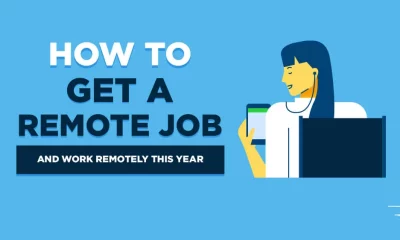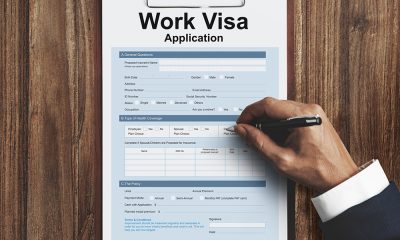Jobs
Italian Employees’ Leave Rights

Italian Employees’ Leave Rights
In Italy, every worker is entitled to one paid holiday every year. The Italian Civil Code mandates a minimum leave period of eight days for domestic workers alone. Collective agreements, which typically mandate paid annual leave of at least four weeks per year, set the minimum leave for all other workers.
The Italian Requirements for Sick Leave:
The requirements for receiving sick time and sick compensation vary globally. Some nations have more regulations than others, but generally they address things like employee type (for example, an office worker vs a manual worker), employment tenure, social security contributions, duration of illness, and the cause of sick leave.
A waiting period for sick pay may apply in certain countries, delaying payment eligibility until an employee has missed a predetermined number of days from work. For instance, there is a three-day waiting period in France, which means that workers are only eligible for compensation if they miss four or more days of work.
The main explanations for sick leave in Italy are as follows:
The acceptable justifications for using sick time are governed by regional laws and workplace rules. Employees often have the option to take sick leave if they are unable to perform their duties normally due to illness.
Reasons for taking a sick day include:
infectious disease
Physical harm or ailment
disease connected to mental health, such as “stress leave”
medical consultations
Hospitalization
Employees may sometimes use sick time to care for an ill family member, although this is often done on emergency, exceptional, or compassionate leave.
Vacation time:
Sabbatical leaves are, to put it simply, “a break from work” when workers may engage in activities or take time off for their physical and emotional wellbeing. Sabbaticals, in contrast to other leaves, often last from six months to a year. Employees often take sabbaticals in educational institutions where academics may need time away from their teaching duties to do research for their projects.
Companies often provide sabbatical leaves to workers who have worked for them for more than three years as a way to thank them for their dedication and commitment.
Religious holidays, such as Christmas, Eid, Easter, Holi, and Yom Kippur, are undoubtedly important to your employee. They will desire the day off to enjoy the holiday with their families. By giving people the opportunity to take time off on the day of the celebration, you must accommodate these holidays they observe.
Take track of each religious holiday using internet tools, and request that staff members send you a message each year noting the religious holidays for which they want to request time off.
Compensatory leave: Workers who have worked longer than necessary hours may be entitled for these days off. Make sure that every employee receives a “comp off” or compensatory day off if they have worked longer hours or showed up to work on days when they were off (such as Saturday).
Employees must be told that they have been granted an additional day of vacation time for the hours they put in, and compensatory time off must be immediately logged in your backend.
An employee may use casual leave to go on vacation, relax, or attend family activities. Such leaves enable the employee to take time off for any upcoming events in their lives, such as weddings or international vacations. By allowing them to prioritize their personal lives as needed, paid casual leave will help workers feel valued by the organization.
Employees typically have a limit of 8 to 15 days of unpaid leave each year.
Paternity leave: Paternity leave enables new fathers—husbands or partners of expectant mothers, surrogate parents, or adoptive parents—to worry-free take care of their infants.
New dads often get 2 weeks of leave to care for their kid after birth, unlike maternity leaves. For new dads, several nations require 1 to 2 weeks of paternity leave.
Since these leave periods are not required by law, employers seldom provide paternity leave for the birth of a child. HRs must be aware of the strains associated with caring for a baby in their first few days and adapting to their presence.
Italy’s government grants days off on public holidays, which are known as paid time off. Every institution, including schools, banks, government agencies, and private businesses, must respect these holidays. Independence Day, Memorial Day, Labor Day, bank holidays, and any nationally recognized day, such as the passing of a notable leader of the nation, are examples of public holidays.
By researching the national holidays that your government has established for your nation, you may include these leaves in your leave policy.
In conclusion:
The article “Employees Leave Entitlements in Italy” details the vacation days that Italian employees are entitled to.
The article goes on to explain additional terms like “leaves,” “maternity leave,” “annual leave,” “sick leave,” “eligibility for sick leave,” “sick leave’s primary purpose,” “sabbatical leave,” “religious holidays leave,” “compensation leave,” “casual leave,” “paternity leave,” and “public holiday leave.”












